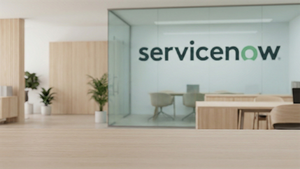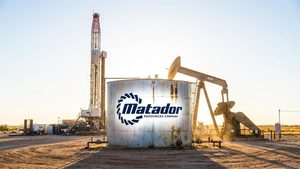 Photo from Unsplash
Photo from Unsplash
Originally Posted On: https://prestigejanitorial.com/the-ins-and-outs-of-animal-hospital-cleaning/
The Ins and Outs of Animal Hospital Cleaning
Overview: Animal hospitals face unique challenges due to the variety of animals they treat, the types of care they provide, and the specific cleaning protocols required to ensure a safe, welcoming environment. In this blog post, we’ll discuss the importance of thorough cleaning in animal hospitals, the work professionals undertake, and how you and your animals stand to benefit from in-depth commercial cleaning
Introduction
Whether you’re a seasoned veterinarian or a hospital manager, maintaining cleanliness at your animal hospital should be a top priority. Clean facilities are the perfect backdrop for you and your staff to provide high-quality care to animals in need. By prioritizing cleanliness and routine sanitization, you can reduce stress for animals, offer a positive experience for clients, and more.
Read along with Prestige Janitorial Services to learn all about the ins, outs, and benefits of professional animal cleaning services.
Why Cleanliness Is Critical in an Animal Hospital
Animal hospitals experience a lot of foot—and paw—traffic. Besides being a hub of activity, they are home to animals with various health conditions, making them highly susceptible to the spread of bacteria, viruses, and even parasites.
Let’s take a closer look at why cleanliness is so crucial for your facilities.
Health and Safety for Animals
Animals, especially those who are unwell, are more vulnerable to infections and contaminants. Effective cleaning prevents cross-contamination and ensures animals can receive treatment and recover in a healthy environment.
Health and Safety for Staff
Veterinarians, technicians, and other staff members are at risk if cleaning practices are not consistent and thorough. Staff are constantly interacting with different animals, tools, and equipment, making them susceptible to zoonotic diseases, those that spread from animals to humans.
Creating a Positive Experience for Clients
First impressions matter. Pet owners trust your facility to care for their animals, and a clean, fresh-smelling environment instills confidence. Cleanliness communicates a high level of professionalism and reassures clients that their pets are in safe, competent hands.
What Commercial Cleaners Can Do for Your Animal Clinic
Commercial cleaning services bring expertise in protocols, ensuring that each step is meticulously followed for an optimal environment.
Here are the spaces commercial cleaners can take care of:
Cleaning Your Reception Area
The reception area is the first impression for clients and a high-traffic zone, so it’s essential to maintain cleanliness here. Floors, countertops, door handles, seating areas, and other frequently touched surfaces are cleaned daily to minimize germ spread.
Exam Room Cleaning
Your exam rooms require disinfecting tables, scales, countertops, and equipment after each patient visit. While technicians usually handle the after-patient wipe-down, our hired cleaners can handle these if desired and perform thorough disinfection at the end of the day. The high-touch areas like cabinet handles, light switches, and seating are also sanitized to prevent cross-contamination.
Treatment and Surgical Areas
Treatment and surgical spaces require intense cleaning due to their function as primary areas for animal care. Every morning and evening, all equipment, floors, and surfaces are disinfected to remove potential contaminants.
The Importance of Between-Use Disinfection
In addition to daily routines, commercial cleaners can provide between-use disinfecting for equipment and surgical areas to keep these spaces pristine and prevent infection in animals undergoing treatment.
Cleaning Kennels and Containment Areas
Kennels and containment spaces are crucial areas requiring special attention, as animals housed here may be in close proximity. Bedding is regularly washed and sanitized, and kennels are disinfected at least once daily.
Disinfecting and Sanitization for Animal Hospitals: A Closer Look
Due to the high risk of bacterial, viral, and fungal spread, you should always make sure you’re using a strong, hospital-grade disinfectant. That said, not all disinfectants are safe for animals, so choose those recommended for veterinary facilities.
Which Disinfectants are Safe for Animals?
Quaternary ammonium compounds, often referred to as “quats,” are a common choice in veterinary settings because they balance efficacy with safety. They’re effective against a wide range of pathogens, including bacteria, viruses, and fungi. This is essential in your animal hospital, where diverse species and various conditions may expose surfaces to different types of contaminants.
Other benefits of quaternary ammonium compounds include:
- Low toxicity when used correctly
- Residual efficacy
- Safe on various surfaces
When professionals deploy these animal-face chemicals, they typically understand the value of proper contact time. Ensure proper contact time as instructed on the disinfectant label, as rushing the process reduces efficacy. Use appropriate PPE (personal protective equipment) like gloves and masks to protect yourself.
Odor Control for Your Clinic
Odors are an unavoidable part of any animal hospital, especially with a variety of animal species coming through daily. However, with the right approach, odors can be managed effectively, keeping your clinic smelling clean and fresh. A few targeted strategies can make a significant difference, helping to create a welcoming space for clients and a calming environment for animals.
If you didn’t already know, there are natural odor control options available to you, such as activated charcoal and the time-honored baking soda. These approaches go a long way in eliminating the many odors that can appear throughout a regular day at the clinic. Beyond that, rigorous cleaning paired with enzyme-based odor neutralizers can make a world of difference.
A professional cleaning company’s approach often involves some combination of the following:
- Activated charcoal in key areas to absorb odors
- Install air purifiers with HEPA and carbon filters
- Use of essential oils carefully in low concentrations if safe for animals
- Cleaning high-odor areas daily with animal-safe disinfectants
- Regularly washing bedding, towels, and animal blankets
- Placing absorbent mats at entrances and under cages
- Using specialized floor deodorizers in high-traffic zones
- Emptying trash bins and waste receptacles frequently
Learn More About Prestige Janitorial Services’s Approach to Animal Clinic Cleaning Services
Prioritizing cleanliness impacts animal welfare and client satisfaction. At the end of each day, you’ll be able to go home knowing you’ve taken steps to cultivate a professional, healthy, and welcoming facility for everyone.
Comprehensive cleanliness like this requires considerable effort, though. Thankfully, Prestige Janitorial Services is always within reach. We’re available to answer questions about proper sanitization practices, address your concerns, and offer a full suite of day-to-day or as-needed commercial cleaning services. Call us at (972) 372-9071 to learn more.




